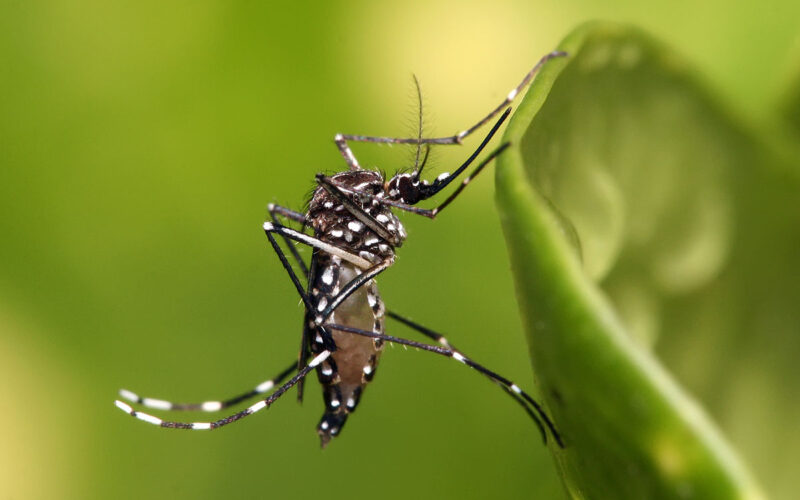CHRISTIANSTED – Virgin Islands Health Commissioner Justa Encarnacion is encouraging the public to take steps to protect against dengue as the number of cases in the neighboring island of Puerto Rico reaches a record high.
Puerto Rico has declared a State of Emergency due to dengue with 549 cases reported as of Thursday, the highest number ever recorded for a three-month period in the Commonwealth. The mosquito-borne virus, which spreads via the Aedes aegypti mosquito, can cause mild to severe and life-threatening symptoms.
“The territory has not seen a spike in dengue cases, but we remain very concerned with Puerto Rico’s high numbers,” said Commissioner Encarnacion. “Dengue is easily transmitted from one person to another through a mosquito bite. We are cautioning residents to remain vigilant and to take steps to prevent being infected.”
Center for Disease Control (CDC) recommendations to prevent mosquito bites include:
- Use Environmental Protection Agency (EPA)-registered insect repellents with one of the following active ingredients: DEET, picaridin, IR3535, oil of lemon eucalyptus, para-menthane-diol, or 2-undecanone.
- Wear lightweight loose fitting long sleeves and long pants, as well as mosquito repellent on exposed skin.
- Always follow instructions when applying insect repellent to children.
- Do not use insect repellent on babies younger than 2 months old. Instead dress your child in clothing that covers arms and legs. Cover strollers and baby carriers with mosquito netting.
- Do not use products containing oil of lemon eucalyptus (OLE) or para-menthane-diol (PMD) on children younger than 3 years old.
- Do not apply insect repellent onto a child’s hands, eyes, mouth, cuts, or irritated skin. Adults: spray insect repellent onto your hands and then apply to a child’s face.
To protect the home, the CDC recommends:
- Once a week, empty and scrub, turn over, cover, or throw out any items that hold water like tires, buckets, planters, toys, pools, birdbaths, flowerpot saucers, or trash containers. Mosquitoes lay eggs near water.
- Tightly cover water storage containers (buckets, cisterns, rain barrels) so mosquitoes cannot get inside to lay eggs.
- For containers without lids, use wire mesh with holes smaller than an adult mosquito.
- If you have a cistern and/or septic tank, repair cracks or gaps. Cover open vent or plumbing pipes. Use wire mesh/mosquito netting with holes smaller than an adult mosquito.
Additionally, the VI Department of Health’s Epidemiology Division conducts mosquito surveillance and test pools of mosquitoes for the presence of virus. The department also has the capacity to use both larvicides to kill mosquito larvae in large bodies of water, as well as outdoor adulticide to kill adult mosquitoes.
The VI Department of Health’s Epidemiology Division is monitoring the USVI (US Virgin Islands) for cases of dengue and working closely with its Puerto Rico counterpart and the Center for Disease Control (CDC) Dengue Branch.
“We are conducting surveillance to know when cases are on the rise in USVI and then can respond accordingly. We have seen some cases but are not yet in an outbreak,” said Dr. Esther Ellis, Territorial Epidemiologist for the VI Department of Health.
Dr. Ellis noted that dengue outbreaks usually occur approximately every 10 years and that the most recent USVI dengue outbreak occurred 12 years ago.
“With upticks in neighboring regions and recent heavy rainfall which provides additional breeding opportunities for mosquitoes it’s highly likely,” Dr. Ellis said.
According to the World Health Organization, dengue is the most common mosquito-borne virus worldwide. More than 400 million people are infected every year. The virus is endemic, occurring regularly, in more than 100 countries in tropical and subtropical climates, mostly in urban and semi-urban areas, — and in Puerto Rico, the US Virgin Islands and American Samoa.
For more information about dengue, visit Dengue | CDC .
If you enjoyed reading this Virgin Islands Free Press article, why not let John know by sending $25.00 via PayPal to: johnfmccarthy807@msn.com

